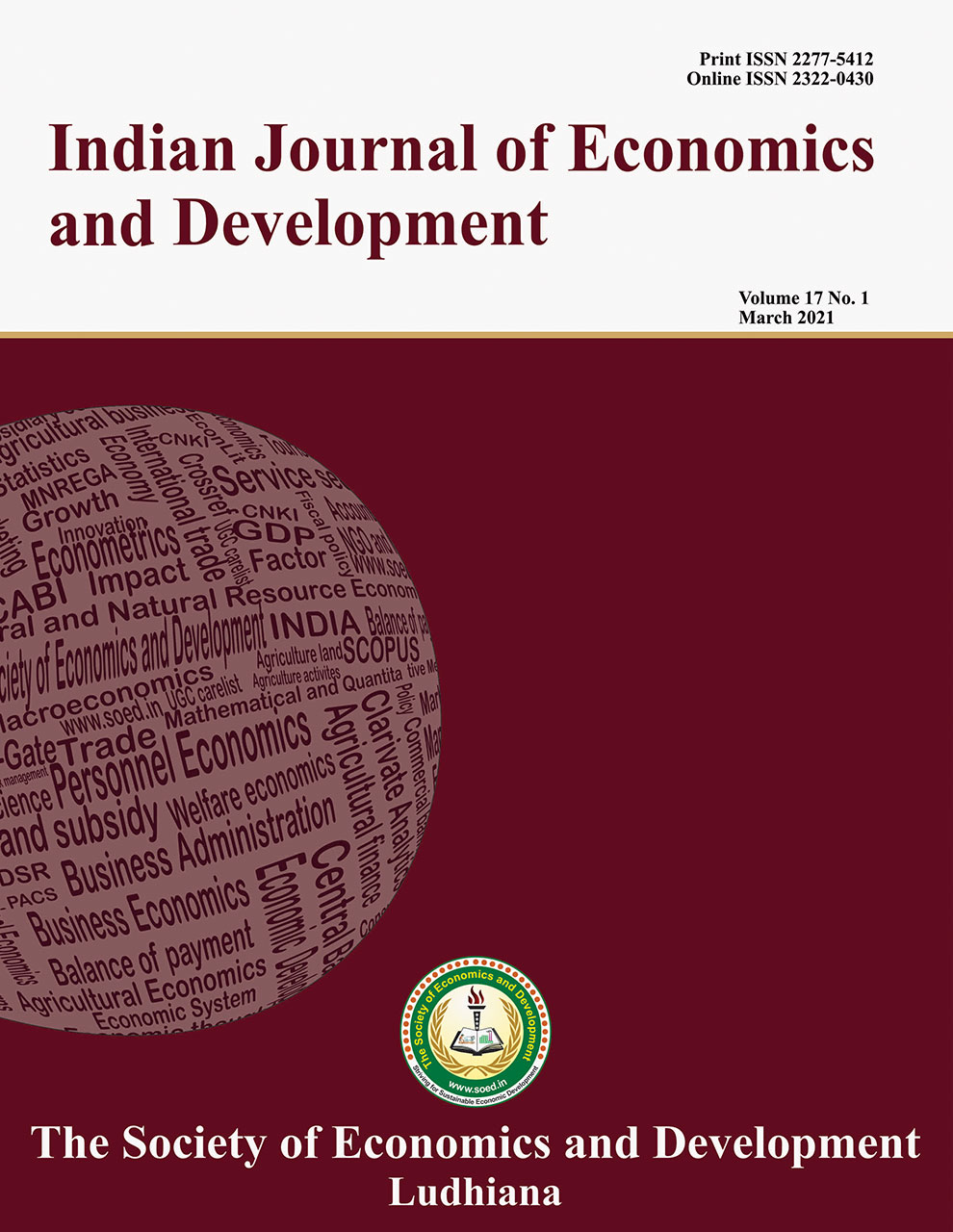An Economic Analysis of Food Demand in Rural and Urban Households of Tamil Nadu

Price: ₹ 1000
Author: K. Thomas Felix1 and P. Naveen Kumar2
Author Address: 1Post Doctoral Fellow, and2Research Scholar, Department of Agricultural Economics, Tamil Nadu Agricultural University, Coimbatore-641 003 (Tamil Nadu)
Keywords: Complement, elasticity, food demand, QUAIDS model.
JEL Codes: Q11,Q18, R22.
Abstract
Food is a basic part of our existence and nourishes the body. The Indian consumer underwent a remarkable transformation in their consumption pattern. Food consumption and expenditure on different commodities is an important area of research for economists. The NSSO data (68th round) was used to derive different demand elasticity for different food groups in Tamil Nadu. The income elasticity derived from the Quadratic Almost Ideal Demand System model revealed that the food group, milk and vegetables are necessary goods in rural households but luxury goods in urban households. The meat was necessary good in urban households but luxury goods in rural households. The uncompensated own price elasticity showed the demand reacted elastically to own price changes for meat, edible oils, and nuts in rural households, milk, egg, vegetables, fruits, nuts and oil in urban households. The uncompensated cross-price elasticity showed milk and beverages were substitutes in both rural and urban households. Similarly, meat and egg in rural, milk and egg, fruits and nuts in urban households were substitutes. The compensated own price elasticity showed nuts and oil in rural and urban households, meat in rural and milk, egg, vegetables and fruits in urban households, were elastic to the price change. The compensated cross-price elasticity showed, fruits, and nuts, egg and meat, meat and fish, appeared to be moderately strong substitutes, cereals and vegetables were complements in rural households, whereas vegetables and edible oils, fruits and vegetables, were substitutes, the commodity group’s fruits and nuts, milk, and egg, were complements in urban households of Tamil Nadu. The study recommended policies such as appropriate technology development to enhance the productivity of oilseeds and meticulous planning of the quantum of edible oil to be imported and rationalization of distribution of edible oils through Public Distribution System, exclusively to the households living under the poverty line to meet the growing demand for edible oil.
Description
Indian Journal of Economics and Development
Volume 16 No. 2, 2020, 173-179
DOI: https://doi.org/10.35716/IJED/19100
Indexed in Clarivate Analytics (ESCI) of WoS
K. Thomas Felix1 and P. Naveen Kumar2
1Post Doctoral Fellow, and2Research Scholar, Department of Agricultural Economics, Tamil Nadu Agricultural University, Coimbatore-641 003 (Tamil Nadu)
Corresponding author’s email: felixtheeconomist@gmail.com



